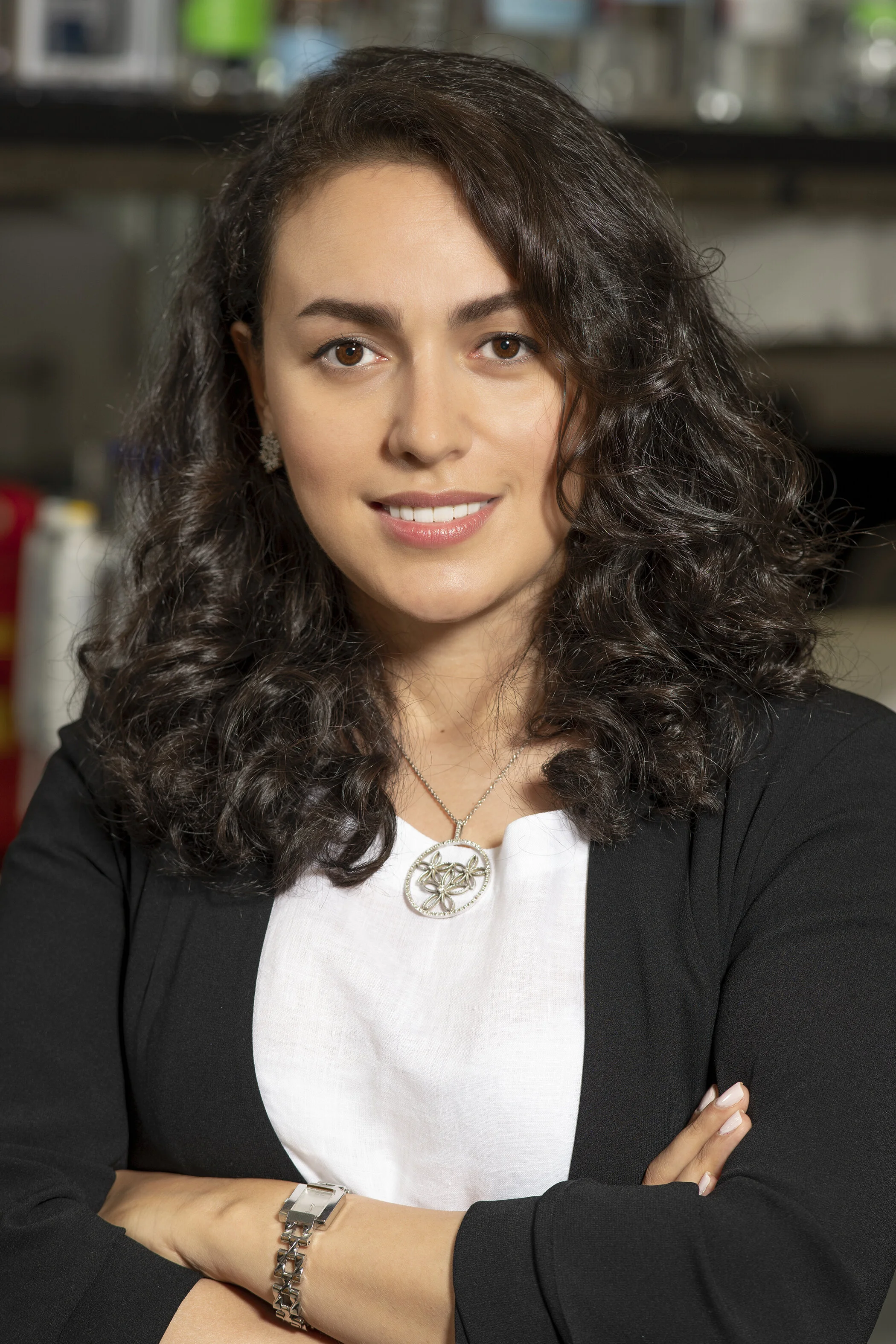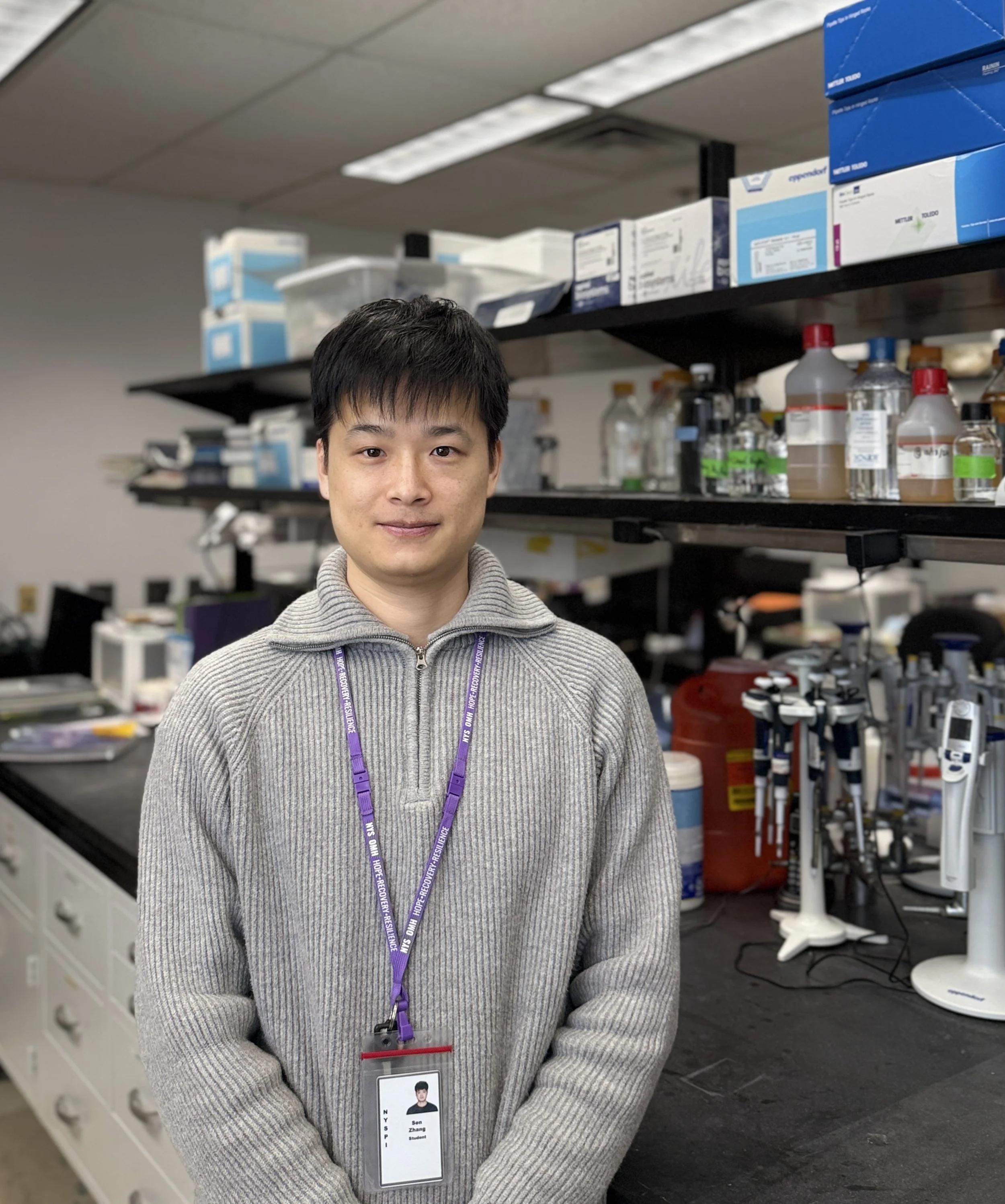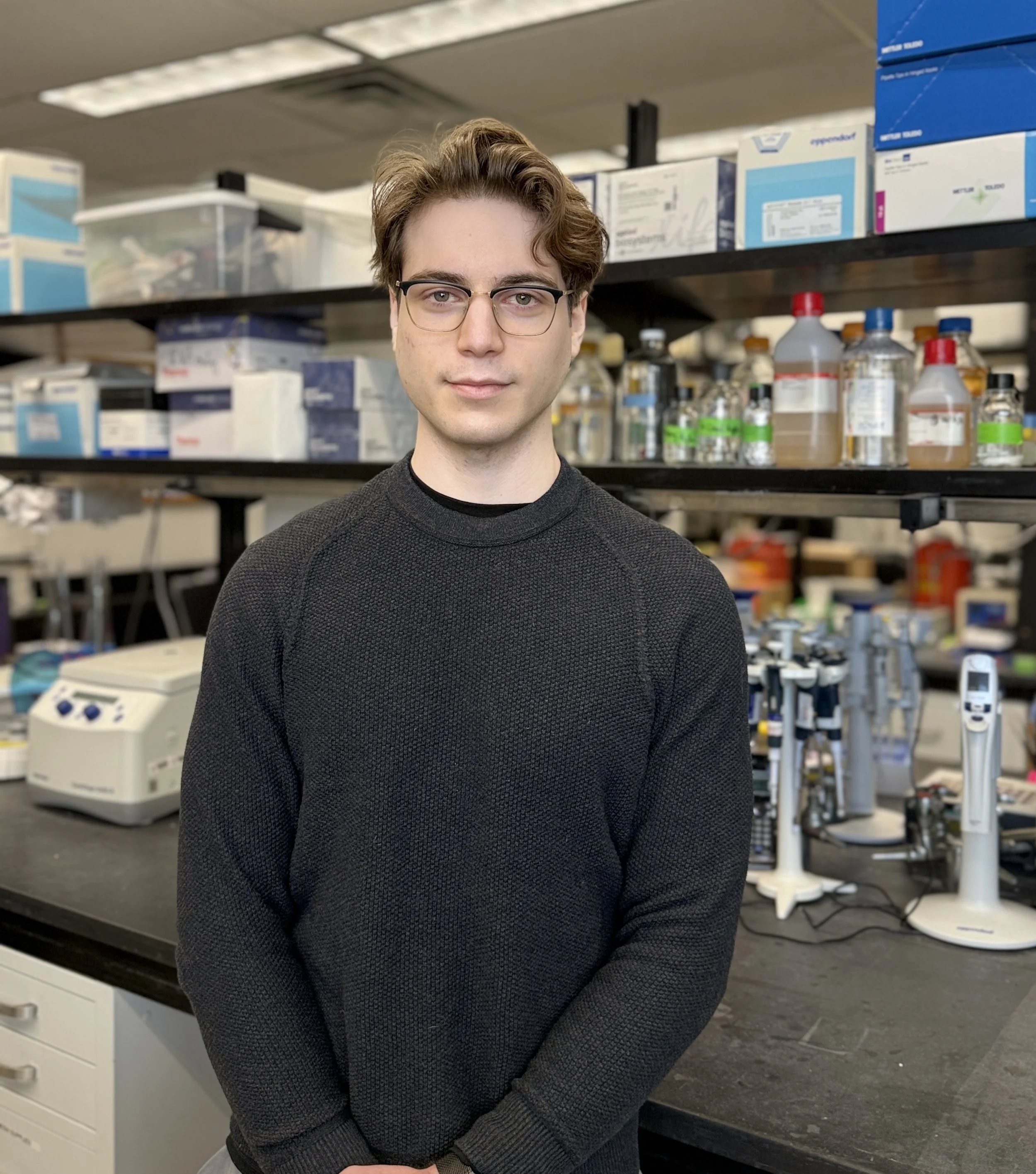
Lab Members
Christoph Anacker, PhD
Principal Investigator
Dr. Anacker received his PhD in 2011 at King’s College London in the UK, where he established a novel human hippocampal stem cell model to study the effects of stress hormones and antidepressants on hippocampal neurogenesis in vitro. He then completed postdoctoral training at McGill University in Montreal, where he studied the neural circuits underlying stress vulnerability, as well as epigenetic effects of early life influences on brain function. He then continued his postdoctoral training at Columbia University in New York, where he discovered that adult hippocampal neurogenesis can confer stress resilience by inhibiting neural activity of the ventral dentate gyrus. Dr. Anacker started his lab in the Department of Psychiatry at Columbia University in 2019, where he studies the neural circuits and molecular mechanisms underlying stress susceptibility and resilience. His lab combines transgenic mouse models, in vivo brain imaging, optogenetic techniques, and molecular approaches, to study how stress at different stages of development causes psychiatric disorders. The goal of this research is to find new ways to target these mechanisms so that we can develop novel treatments and preventive strategies for psychiatric disorders.
Maryam Hasantash, PhD
Research Scientist II
Maryam is a research scientist in the lab. She received her Ph.D. in System Neuroscience from the Institute for Research in Fundamental Sciences (IPM) in Tehran, Iran. In her graduate work under supervision of Dr. Arash Afraz, she studied the neural basis of color vision. She then joined the Conway lab at Massachusetts Institute of Technology (MIT) and continued her research on color memory and its interaction with human face recognition. Maryam joined the Anacker lab in 2019, where her research focuses on neural circuitry underlying cognitive flexibility and stress resilience. She uses in vivo calcium imaging in freely moving mice to investigate the functional role of ventral hippocampus – orbitofrontal cortex projections for cognitive flexibility, stress coping, and resilience. Maryam has been awarded the NARSAD Young Investigator Award (2024) to study neural circuits of stress susceptibility and resilience.
Minkyung Park, PhD
Postdoctoral Researcher
Minkyung is a postdoctoral researcher in the lab. She received her Ph.D. in Medical Science (Neuroscience) from the Yonsei University College of Medicine, South Korea. During her graduate studies, she studied underlying mechanisms of central/ peripheral neuropathic pain and treatment effects using Adeno-associated virus (AAV) and deep brain stimulation (DBS). Minkyung joined the Anacker lab in the Spring of 2024. She investigates how early life stress reshapes neural circuitry and leads to serotonergic dysfunction and cell-type specific impact on neuronal activity using optogenetics, in vivo fiber photometry and calcium imaging.
Sen Zhang
Visiting Scholar
Sen Zhang is a visiting PhD student from East China Normal University whose research focuses on the intergenerational effects of exercise on offspring stress resilience. His doctoral work examines the molecular and neural mechanisms underlying how histone lactylation mediates exercise-induced stress resilience in offspring. He joined the lab in May 2025 and is currently investigating how cognitive flexibility training affects stress responses in dams and their offspring. In his downtime, he enjoys playing tennis and basketball.
Leon Glass
Undergraduate Researcher
Leon is an undergraduate at Columbia University studying Neuroscience and Behavior. He joined the Anacker lab in 2025 and is assisting with research investigating how early life adversity (ELA) shapes neuronal cell populations and receptor expression, using techniques such as RNAscope. Outside the lab, Leon enjoys tutoring and volunteering as an EMT.
JP Okeke
Undergraduate Researcher
JP is an undergraduate at Columbia University majoring in Neuroscience and Behavior on the pre-medical track. He joined the Anacker lab as a undergraduate research assistant in 2024, where he supports studies exploring the impacts of early life adversity (ELA) on brain function and behavior. JP focuses on how ELA alters neural circuitry involved in stress responses and cognitive flexibility. Outside of the lab, JP enjoys mentoring through the ACComPLISHED program with Columbia Neurology, reading, and spending time with friends.
Kate Slavashevich
Department Administrator
Nicki Amin
Department Lab Manager / Administrative Assistant
Lab Alumni
Marine Pujol - Postdoctoral Researcher
Lauren Malave - Postdoctoral Researcher
Rushell Dixon - Graduate Student
Cady Chen - Undergraduate Researcher
Neilah Rustemi - Research Assistant
John Bickle - Research Assistant
Camilla Foglesong - Research Assistant
Lamiya Rahmen - Undergraduate Researcher
Hannah Ramsey - Undergraduate Researcher
Eva Sher - Research Assistant
Ryan Shores - Research Assistant
David Gérard - Graduate Student
Viviana Evans - Undergraduate Researcher
Ben Yuan - Undergraduate Researcher
Leila Tejani - Undergraduate Researcher
Serena Wu - Research Assistant
Eduardo Campos - Fulbright Scholar
Arielle Emile - High School Student






